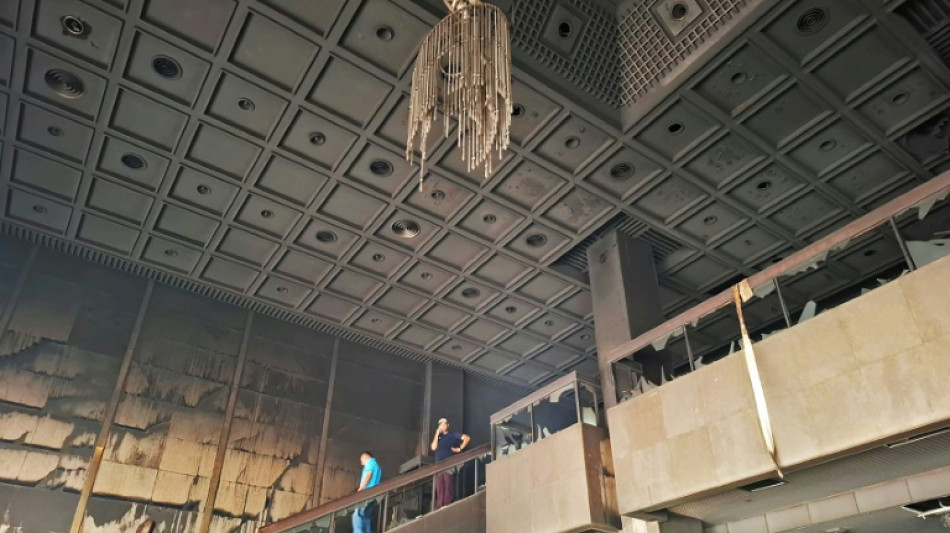
-
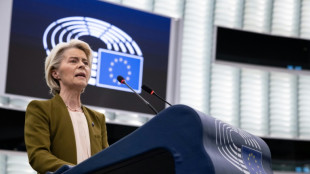 Von der Leyen urges EU to fight for place in 'hostile' world
Von der Leyen urges EU to fight for place in 'hostile' world
-
Kidnapped Israeli-Russian academic Tsurkov released in Iraq

-
 Syrian jailed for life over deadly knife attack at German festival
Syrian jailed for life over deadly knife attack at German festival
-
Top EU court upholds nuclear green label
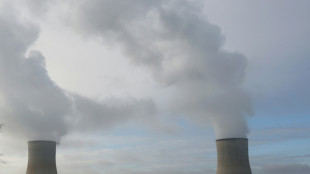
-
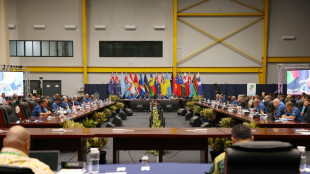 Pacific Island leaders back 'ocean of peace' at fraught summit
Pacific Island leaders back 'ocean of peace' at fraught summit
-
Israel defends Qatar strikes after rebuke from Trump
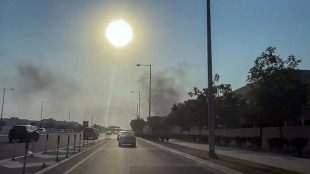
-
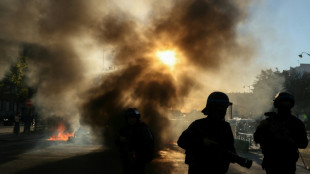 'Block everything': France faces disruption as new PM starts job
'Block everything': France faces disruption as new PM starts job
-
Ozempic maker Novo Nordisk to cut 9,000 global jobs

-
 Five athletes who could sparkle at world championships
Five athletes who could sparkle at world championships
-
Asian markets enjoy record day as new US jobs data fans rate cut hopes
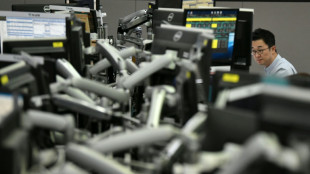
-
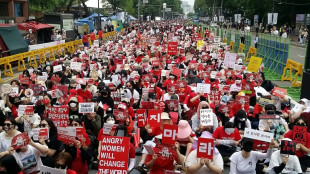 South Korea overturns 60-year ruling on woman's self-defence case
South Korea overturns 60-year ruling on woman's self-defence case
-
Classical music is not Netflix, says Latvian mezzo-soprano Elina Garanca

-
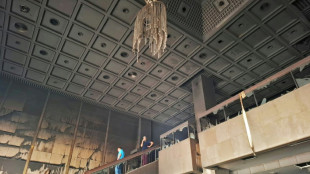 The factors behind violent unrest in Nepal
The factors behind violent unrest in Nepal
-
Nepal army bids to restore order after deadly protests oust PM
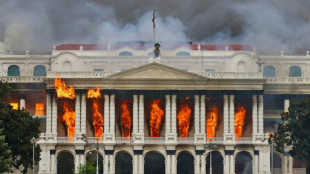
-
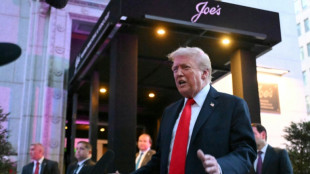 Trump jeered at Washington restaurant, called 'Hitler of our time'
Trump jeered at Washington restaurant, called 'Hitler of our time'
-
Jamaica, Curacao and Honduras win in World Cup qualifying

-
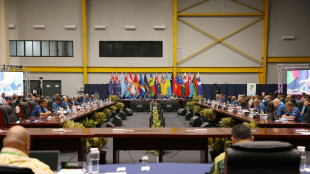 Pacific Islands leaders to back 'ocean of peace' at fraught summit
Pacific Islands leaders to back 'ocean of peace' at fraught summit
-
South Korea sends plane to fetch detained workers from US

-
 Poland says 'hostile objects' downed in its airspace during Russian attack on Ukraine
Poland says 'hostile objects' downed in its airspace during Russian attack on Ukraine
-
Nepal army patrols after deadly protests oust PM
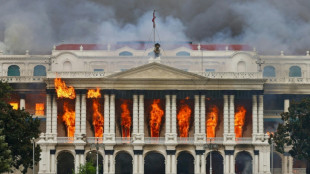
-
 Salvaged shipwreck porcelain gets new life in Malaysia
Salvaged shipwreck porcelain gets new life in Malaysia
-
EU chief to defend Trump trade deal in parliament
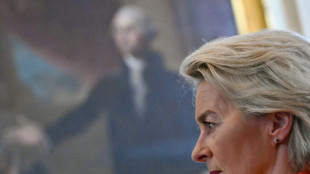
-
 USA blank Japan while South Koreans draw Mexico in friendlies
USA blank Japan while South Koreans draw Mexico in friendlies
-
Top Japan start-up Sakana AI touts nature-inspired tech

-
 Australia to deploy fleet of underwater strike drones
Australia to deploy fleet of underwater strike drones
-
France set for disruption as new PM takes office

-
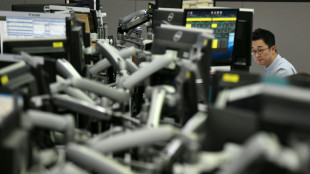 Asian markets rally as new US jobs data fans rate cut hopes
Asian markets rally as new US jobs data fans rate cut hopes
-
Jamaicans beat Trinidad and Tobago in World Cup qualifying

-
 Zendejas and Balogun lift USA over Japan 2-0 in friendly
Zendejas and Balogun lift USA over Japan 2-0 in friendly
-
Australia approves chlamydia vaccine for koalas

-
 Lyles leads US medal charge in Tokyo, Kipyegon eyes fourth title
Lyles leads US medal charge in Tokyo, Kipyegon eyes fourth title
-
Kidnapped academic Elizabeth Tsurkov released in Iraq

-
 'It was bananas': Colin Farrell shoots new movie in Macau casinos
'It was bananas': Colin Farrell shoots new movie in Macau casinos
-
De Minaur says Australia ready to snap Davis Cup title drought

-
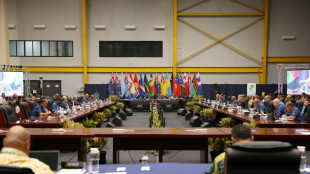 Pacific Islands leaders kick off summit clouded by China tensions
Pacific Islands leaders kick off summit clouded by China tensions
-
Obese surpass undernourished youths for first time, UN warns
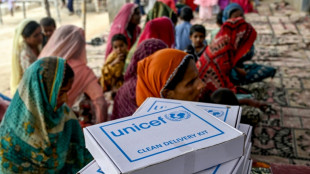
-
 Kingfisher Metals Reports 234 meters of 1.0% Copper Equivalent, within 558 meters of 0.64% CuEq at HWY 37 Project, Golden Triangle, British Columbia
Kingfisher Metals Reports 234 meters of 1.0% Copper Equivalent, within 558 meters of 0.64% CuEq at HWY 37 Project, Golden Triangle, British Columbia
-
Evonik Oxeno Goes Live with Upgraded Decision-Centric Planning Platform in the Cloud

-
 OneStopCentre Launches PaperTools.io - 100% Free Business Tools for Entrepreneurs and Small Businesses
OneStopCentre Launches PaperTools.io - 100% Free Business Tools for Entrepreneurs and Small Businesses
-
Pulsar to Present at the European Growth Virtual Investor Conference

-
 Presentation to Beaver Creek Precious Metals Summit
Presentation to Beaver Creek Precious Metals Summit
-
Labor Smart, Inc. (OTC:LTNC) Provides Corporate Update Following Sept. 9 X Spaces Discussion

-
 Collision Clinic LTD Recognized with 2025-26 Consumer Choice Award for Automobile Body Shop in St. John's
Collision Clinic LTD Recognized with 2025-26 Consumer Choice Award for Automobile Body Shop in St. John's
-
US Supreme Court to hear Trump tariff case in November
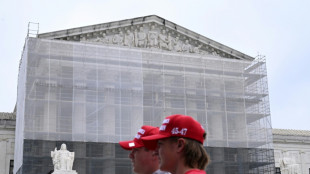
-
 NBA Bulls re-sign Australian guard Giddey
NBA Bulls re-sign Australian guard Giddey
-
Former Meta researchers testify company buried child safety studies
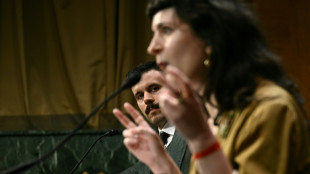
-
 Trump issues rare rebuke to Netanyahu over Qatar strikes
Trump issues rare rebuke to Netanyahu over Qatar strikes
-
US stocks close at fresh records, digesting weak jobs data
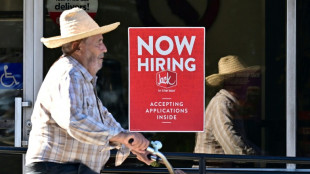
-
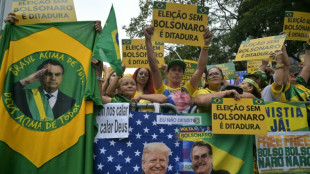 Bolsonaro on brink of conviction in Brazil coup trial
Bolsonaro on brink of conviction in Brazil coup trial
-
England set the standard with Serbia rout: Tuchel


The factors behind violent unrest in Nepal
Nepali youth, digitally savvy but bowed down by unemployment and limited opportunities, hit a breaking point this week, furious at an elderly ruling class they see as out of touch.
Dissatisfaction has grown at political instability, corruption, and slow economic development in the Himalayan nation of 30 million people.
That escalated into street anger on Monday, triggered by a government ban on social media -- later overturned -- with at least 19 people killed as police sought to crush protests.
The resignation of 73-year-old Prime Minister KP Sharma Oli failed to quell the anger of protesters, who set fire to parliament and a string of other government and political party buildings.
Many said that the social media ban was only the spark for protests.
Here are some of the factors that toppled the government.
- Economic woes -
The World Bank says a "staggering" 82 percent of Nepal's workforce is in informal employment, "far higher than global and regional averages".
Remittances are crucial for Nepal's economy, equalling a third of the country's GDP last year and the fourth-highest rate globally, according to the World Bank.
Social media is a key tool in keeping in touch with relatives abroad.
"Nepal's reliance on remittances... has been central to the country's growth but has not translated into quality jobs at home, reinforcing a cycle of lost opportunities and the continued departure of many Nepalis abroad in search of employment," the World Bank said in its latest country report.
The economy has picked up; real GDP grew by 4.9 percent in the first half of the 2025 financial year -- from 4.3 percent in the same period in 2024, mainly due to the agricultural and industrial sectors.
Nepal categorises young people as aged between 16-40, totalling more than 12 million people or nearly 43 percent overall, according to government statistics.
"With around 500,000 young people joining the workforce every year in Nepal, the urgency to create jobs that lift families out of poverty and drive sustainable development has never been more critical," said World Bank Vice President for South Asia, Johannes Zutt, after a visit last week.
- Corruption -
The rights group Transparency International ranks Nepal 107 out of 180 countries.
Videos contrasting the struggles of ordinary Nepalis with the children of politicians flaunting luxury goods and expensive vacations have gone viral on TikTok.
Puja Manni, a 23-year-old woman who has worked abroad, said the excesses of the ruling elite had been "exposed through social media".
Among the young, there was widespread dissatisfaction with leaders who have held power for decades.
The country became a federal republic in 2008 after a decade-long civil war and a peace deal that saw the Maoists brought into government and the abolishment of the monarchy.
Since then, a revolving door of ageing prime ministers and a culture of horse-trading have fuelled public perception that the government is out of touch.
- Fear at loss of rights -
Nepal's National Human Rights Commission warned the social media ban undermined "the spirit of democratic governance".
Santosh Sigdel, of Digital Rights Nepal, said the ban was a "slippery slope", while the Kathmandu Post said it "touched a raw nerve" with an angry youth.
"They use these platforms to vent pent-up frustrations, connect with friends, and keep abreast with the rest of the world," wrote the newspaper, whose offices were torched by a mob Tuesday.
"They were already antsy, fed up with the country's woeful health and education systems, and rampant corruption and nepotism -- so much so that many of them saw no future in the country."
A.Mahlangu--AMWN